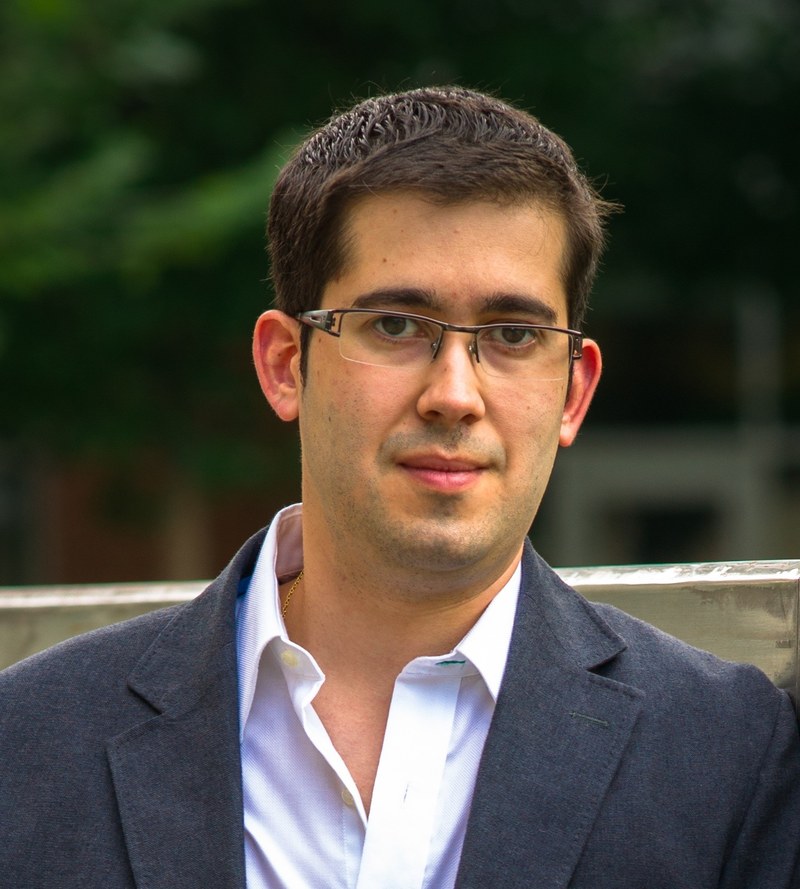Conference: "The Internet of Nano-Things: From Nanomaterials to Macrosystems", Prof. Josep Miquel Jornet, University at Buffalo, NY
The tools provided by nanotechnologies allow us to create new types of devices not only smaller, but also with unprecedented properties. Among others, nano-biosensors and nanoactuators, capable of observing and controlling subcellular processes with molecular precision, have been experimentally demonstrated in recent years. At the moment these devices are neither autonomous nor intelligent, but they require the control and supervision of a local operator to operate. However, in the same way that telecommunication between virtually all objects in our environment has changed the way we live, communication between nanosensors and, eventually, their interconnection on the Internet, will revolutionize the diagnosis and treatment of various Diseases, from different types of cancer to neurodegenerative diseases. In this seminar, we will introduce the concept of the Internet of Nano-things and we will define the role and opportunities that telecommunication engineers have in the development of this area of research. First, review the state of the art in terms of emitters and detectors, modulators and demodulators, antennas and groupings of antennas at optical frequencies and in the Terahertz band. We will also study new channel models for the human body that take into account the complexity and interactions of biological tissues with electromagnetic waves at these frequencies. Finally, based on the capabilities of the nano-devices and channel properties, we will discuss mechanisms to be able to transmit information between nano-devices in a reliable, efficient and biocompatible manner.
- https://telecos.upc.edu/en/events/conferencia-l2019internet-de-les-nano-coses-de-nanomaterials-a-macrosistemes-a-carrec-del-prof-josep-miquel-jornet-university-buffalo-ny
- Conference: "The Internet of Nano-Things: From Nanomaterials to Macrosystems", Prof. Josep Miquel Jornet, University at Buffalo, NY
- 2018-01-18T10:00:00+01:00
- 2018-01-18T11:30:00+01:00
- The tools provided by nanotechnologies allow us to create new types of devices not only smaller, but also with unprecedented properties. Among others, nano-biosensors and nanoactuators, capable of observing and controlling subcellular processes with molecular precision, have been experimentally demonstrated in recent years. At the moment these devices are neither autonomous nor intelligent, but they require the control and supervision of a local operator to operate. However, in the same way that telecommunication between virtually all objects in our environment has changed the way we live, communication between nanosensors and, eventually, their interconnection on the Internet, will revolutionize the diagnosis and treatment of various Diseases, from different types of cancer to neurodegenerative diseases. In this seminar, we will introduce the concept of the Internet of Nano-things and we will define the role and opportunities that telecommunication engineers have in the development of this area of research. First, review the state of the art in terms of emitters and detectors, modulators and demodulators, antennas and groupings of antennas at optical frequencies and in the Terahertz band. We will also study new channel models for the human body that take into account the complexity and interactions of biological tissues with electromagnetic waves at these frequencies. Finally, based on the capabilities of the nano-devices and channel properties, we will discuss mechanisms to be able to transmit information between nano-devices in a reliable, efficient and biocompatible manner.
Jan 18, 2018 from 10:00 AM to 11:30 AM (Europe/Madrid / UTC100)
Aula de Teleensenyament - Edifici B3
Webpage: http://ubnano.tech
Talk in English
Short Bio:
Josep Miquel is a Professor at the Department of Electrical Engineering at the University of Buffalo, New York, since August 2013. He received the Telecommunications and Master's Degree in Information Technology and Communication from the University Polytechnic of Catalonia (UPC) in 2008. During the last year of master's studies, he worked as a researcher at the Massachusetts Institute of Technology (MIT) in Boston. From January 2009 to August 2013, he studied Doctorate in Electrical Engineering and Computing at the Georgia Institute of Technology (Georgia Tech), Atlanta, with the support of a scholarship from the La Caixa Foundation (2009-2010) and the Fundación Caja Madrid (2011-2012). In 2009, he received Oscar P. Cleaver Award as an extraordinary student at the School of Electrical and Computer Engineering at Georgia Tech. In 2010 he received the award as an investigator of the year at the Broadband Wireless Networking Laboratory, also at Georgia Tech. In 2017, he received three prizes from the scientific community, including the IEEE Communications Society Young Professional Best Innovation Award, for innovations in the field of networks of implantable nano-sensors for the detection of cancer; the ACM NanoCom Outstanding Milestone Award, for the development of nano-devices for ultrafast communications at the frequencies of Tera-herzs, and the UB SEAS Early Career Researcher of the Year Award, as a researcher of the year at the School of Music, Engineering at the University of Buffalo. Since 2016, Josep Miquel has been the editor of the scientific journal Nano Communication Networks (Editorial Elsevier). His research focuses on communications at very high frequencies (Terahertz, optics), networks of nano-sensors inside and outside the human body, and the Internet of Things and Nano-Things.

Share: